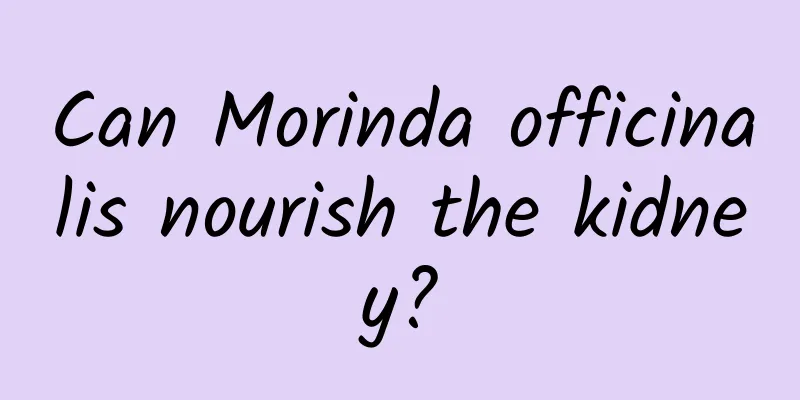They come from Lingnan and are full of infinite magic.

|
Mr. Qiu is good at absorbing the experience of old Lingnan Chinese medicine practitioners in treating diseases. In addition, through long-term clinical verification, exploration and comparison over the past 50 years, he is not only familiar with the properties and efficacy of Chinese medicine, but also has accumulated rich clinical experience in Lingnan folk herbal medicine. The experience of using Lingnan folk herbal medicines commonly used in the clinical treatment of gastrointestinal and liver diseases is summarized as follows: 1. Unicorn: also known as Unicorn Gold and Malnutrition Grass. It tastes sweet and light, and is neutral in nature. It has the functions of clearing the liver and eliminating malnutrition, strengthening the spleen and promoting digestion. The dosage is 5~9g. It can treat infantile malnutrition, indigestion, poor appetite and diarrhea. 2. Bengdawan: also known as Centella asiatica. It tastes bitter and spicy, is cold in nature, and has the functions of clearing away heat and dampness, detoxifying and reducing swelling, and has a mild nature. Dosage: 15g. Treatment: ① damp-heat jaundice; ② sore throat; ③ enema treatment of chronic colitis and colon dialysis for renal insufficiency, often with rhubarb, oyster, and Sophora japonica decoction to preserve the colon, perform colon dialysis, and excrete toxins. 3. Five-clawed dragon: also known as five-fingered peach. It tastes sweet and is slightly warm. It has the functions of invigorating qi and strengthening the spleen, removing phlegm and relieving asthma, promoting qi and eliminating dampness, and relaxing muscles and activating collaterals. The dosage is 15~30g. Treatment: ① Myasthenia gravis caused by spleen and stomach qi deficiency, 30-60g should be used; ② Fatigue, poor appetite, abdominal distension or spleen deficiency edema and leucorrhea without spleen deficiency, because this product is similar to Astragalus membranaceus in replenishing qi, but it is a different species, some are called Southern Astragalus, this product is slightly warm in nature, not as warm and dry as Astragalus membranaceus, it is used for qi deficiency, but with virtual fire that cannot tolerate the dryness and heat of Astragalus membranaceus, and those who often achieve the effect of replenishing qi, Wuzhaolong is the best choice; ③ Treatment of chronic hepatitis and ascites due to liver cirrhosis. 4. Qianjinba: also known as rat tail. It tastes sweet, slightly astringent, and is neutral in nature. It can nourish the spleen and stomach, benefit the liver and kidneys, strengthen the waist and knees, and relax the tendons and meridians. Treatment: ① Fatigue or myasthenia gravis caused by weak spleen and stomach, often used in combination with Pentacles; ② Rheumatic pain, pain in the waist and legs; ③ Traumatic injuries. 5. Achyranthes bidentata: also known as inverted grass and June snow. It tastes sweet and light, is cold in nature, and has the functions of dispelling heat, clearing away diuresis and relieving stranguria, and promoting blood circulation and dispersing blood stasis. The dosage is 9~15g. Treatment: ① Cold, fever, sore throat and tonsillitis; ② Summer heat headache; ③ Prolonged fever due to damp-heat disease, alternating chills and fever due to malaria; ④ Urinary tract infection due to stranguria; ⑤ Prevention of influenza; ⑥ External washing or compress to treat swelling and pain caused by falls. 6. Ginseng leaves: The leaves of ginseng are bitter and sweet, cold in nature, and can replenish qi, benefit the lungs, dispel heat, and promote the production of body fluids. The dosage is 3~9g. Treatment: ① Cough due to Qi deficiency that does not heal after long-term treatment; ② Summer heat damages body fluids and consumes Qi, leading to irritability, fever, thirst, confusion, and fatigue in the limbs during the hot summer season. 7. White-backed leaf root: also known as white membrane root and white Pu root. It tastes slightly astringent and bitter, is neutral in nature, and has the functions of clearing away heat and dampness, replenishing Qi and strengthening the body, and soothing the liver and activating blood circulation. Dosage: 15-30g. Treatment: ① Chronic hepatitis, hepatosplenomegaly, and decreased transaminase; ② Enteritis, rectal prolapse, uterine prolapse, and hernia; ③ Gonorrhea and leucorrhea; ④ Red and swollen eyes; ⑤ Soak and drip in the ears to treat pus in the ears. |
<<: It looks unremarkable, but its small body has great energy.
>>: If everyone knows about this chicken treasure, all hospitals will have to close down.
Recommend
Is licorice hot or cold?
Licorice is a medicinal herb that is often used i...
Some spinach tastes delicious while others taste astringent. Why is that?
When it comes to the animation "Popeye"...
The efficacy and function of the bone-breaking tree
I believe many people are familiar with the Chine...
The efficacy and function of fresh ginseng
In daily life, ginseng is very familiar to many p...
Doctors are most afraid of people having this thing at home
During the Mid-Autumn Festival holiday, I took my...
What are the effects and contraindications of the traditional Chinese medicine Panax notoginseng?
Panax notoginseng is a very common Chinese herbal...
Striving for youth is just about climbing! Come on, students!
2022 College Entrance Examination Today officiall...
KCI: 2023Q4 Consumer Survey Report
According to a survey by Kearney Consumer Researc...
Why is it so easy to lose your flag? Here are some tips to help you rush towards your goal with full energy
As we bid farewell to the old and usher in the ne...
Different “degrees” mean different plans | Who should I listen to when deciding the air conditioning temperature?
In the hot summer, some people are sweating profu...
Is there any scientific basis for strictly controlling electronic products to protect eyesight?
In order to protect their children's eyesight...
You bump into it and you say "ouch", it bumps into it and you say 130 billion
END Tadpole's original work, please indicate ...
How do oil paintings that are hundreds of years old keep their youthful appearance?
On May 18th every year, most museums around the w...
What are the effects of Acacia vine leaves
Acacia vine is a traditional Chinese medicinal ma...









